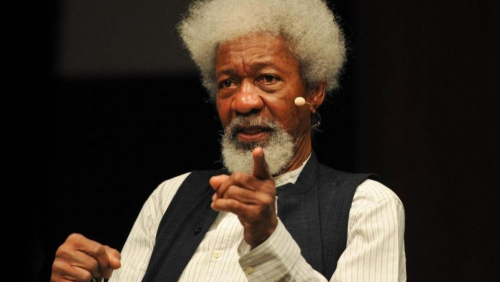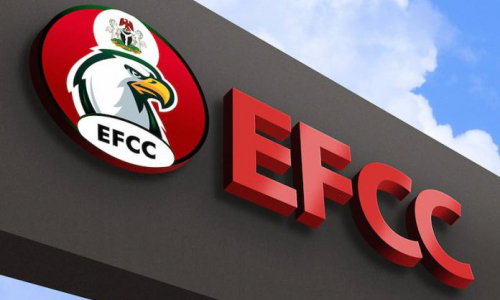NEWS UPDATES 04/04/2023
Naira Swap: Soyinka Chides Emefiele For ‘Crime Against Humanity’

Prof. Wole Soyinka has criticised the Governor of the Central Bank of Nigeria (CBN), Godwin Emefiele, for the controversial naira swap policy that resulted in nationwide scarcity of banknotes.
Emefiele had introduced redesigned N200, N500, and N1,000 banknotes in October 2022, announcing the phasing out of the old notes by January 31, 2023, later extending the deadline to February 10.
Though the policy was premised on preventing vote-buying in the lead-up to the general elections, the Supreme Court later ruled that the old currency remain legal tender until December 31, 2023.
In the Monday broadcast of Channels Television’s Roadmap 2023, the Nobel Laureate condemned the CBN governor over the naira swap policy introduced months to the polls held on February 25 and March 18.
“Emefiele has committed a crime against humanity, over and beyond even any electoral mago mago (foul play),” Soyinka said.
“He struck at the heart of the subsisting survival principles, minimal needs and entitlements of the ordinary people in the street.”
Speaking on he need for people-focused leadership, he explained that his agitations have always been born of a desire to interact with Nigerians in a state he referred to as civic dignity.
For the reverred playwright, President Muhammadu Buhari allowed Emefiele to let Nigerians suffer.
“Don’t bully me. Don’t take my voice away. Don’t take my economic potential away, my economical entitlements. Don’t throw me on the mercy of sadists like Emefiele,” he said.
“He and his boss, Buhari, because ultimately responsibility rests with him [Buhari] to have allowed this to happen. But he [Emefiele] is the expert. He’s the one who gives the advice, he’s the one who executes the policies.”
Soyinka accused the CBN governor as reducing the country to a state of despondency.
Recounting his own experience, the activist said, “Even a few days ago, when I sent a text to the bank and a cheque came back, they had no cash.
“One of the bankers eventually brought me something from his own stash and explained to me what had been going on, how they would sit and wait for money to come.
“You can’t buy a newspaper. You can’t buy guguru (popcorn) and epa (grounduts), which means that you cannot pay for the plantain; which means that the farmer cannot even pay for transportation of the goods from his farm to the [markets].”



